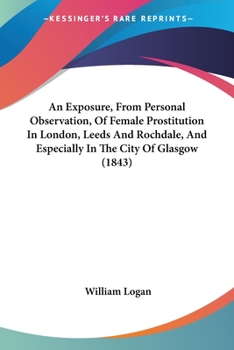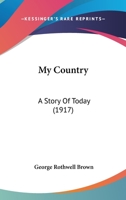An Exposure,from personal observation of Female Prostitution
An Exposure, From Personal Observation, Of Female Prostitution In London, Leeds And Rochdale, And Especially In The City Of Glasgow (1843) is a book written by William Logan. The book provides a detailed and eye-opening account of the rampant practice of female prostitution in various cities in the United Kingdom during the 19th century. Logan, who was a social reformer and activist, conducted extensive research and personal observations to shed light on the plight of women who were forced into prostitution due to poverty, lack of education, and other social and economic factors. The book exposes the harsh realities of the lives of these women, including the abuse and exploitation they faced at the hands of clients and pimps. The author also highlights the inadequate measures taken by the government and law enforcement agencies to address this issue. The book serves as a powerful critique of the prevailing social and economic conditions of the time and is a testament to the author's commitment to social justice and equality.With Remarks On The Cause, Extent, Results, And Remedy Of The Evil.This scarce antiquarian book is a facsimile reprint of the old original and may contain some imperfections such as library marks and notations. Because we believe this work is culturally important, we have made it available as part of our commitment for protecting, preserving, and promoting the world's literature in affordable, high quality, modern editions, that are true to their original work.
Format:Paperback
Language:English
ISBN:143677313X
ISBN13:9781436773133
Release Date:June 2008
Publisher:Kessinger Publishing
Length:52 Pages
Weight:0.18 lbs.
Dimensions:0.1" x 6.0" x 9.0"
More by George Rothwell Brown
Customer Reviews
0 customer rating | 0 review
There are currently no reviews. Be the first to review this work.




























